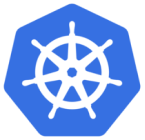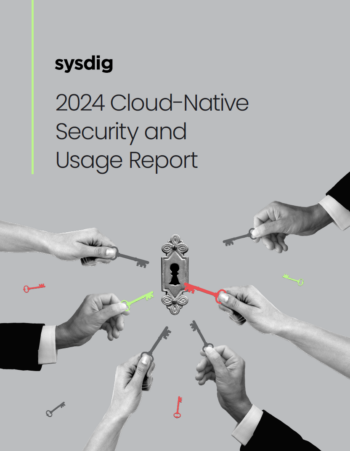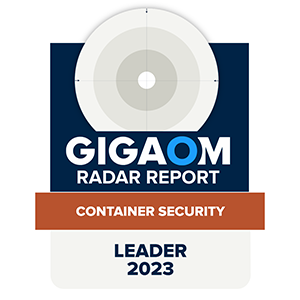

SECURE
EVERY
SECOND.
Cloud attackers move fast. Sysdig helps you move faster with the power of runtime insights. Get the visibility and context required to stop attacks in real time.
Learn More
The Results Are In
Sysdig is Rated #1
for Product Capabilities
97% of customers were willing to recommend Sysdig. See what else our customers say in the Gartner Voice of the Customer Report for CSPM Tools.
Based on 30 reviews rated 5/5 as of 30th Nov 2023
Read MoreCloud Security
Powered by Runtime Insights
A complete CNAPP that prioritizes the vulnerabilities, misconfigurations, permissions, and threats that matter most.
Cloud Detection & Response
Safeguard against cloud-based threats with comprehensive detection capabilities.
Vulnerability Management
Zero in on real risk and reduce vulnerability noise up to 95% with runtime intelligence.
Posture Management
Identify, prioritize, and control risks across multiple cloud environments.
Permissions & Entitlements
Gain visibility into cloud identities and manage permissions.
The value of CNAPP
Consolidate security solutions, speed time to detect and respond, accelerate time to market, and reclaim time.
Learn More
Why Customers Choose Sysdig
A Single View of Cloud Risk
Powered by our Cloud Attack Graph, Sysdig correlates assets, activity, and risks across domains, giving you real-time visibility into attacks.
Prioritization Based on Runtime Insights
Generate a prioritized list of risks using multi-domain correlation to identify risky combinations across environments. Risk prioritization is powered by runtime insights such as in-use vulnerabilities and in-use permissions.
Uncover Attack Paths
Visualize exploitable links across resources to uncover attack paths to sensitive data. With runtime insights, real-time detections reveal active lateral movement, helping you stop attacks in their tracks.
Built for a Multicloud World
Our cloud and container security platform supports multi-cloud environments and addresses risk across all of your cloud accounts and deployments.
The 2024 Cloud-Native Security and Container Security Usage Report
The cloud accelerates innovation. But what are the risks of moving too fast?
Cloud Security Leadership Starts Here
See Sysdig in Action
From prevention to defense, Sysdig helps you prioritize critical risks and stop attacks in real time.









